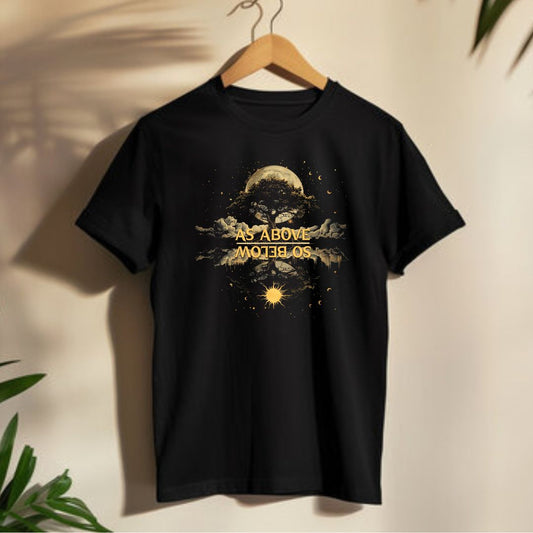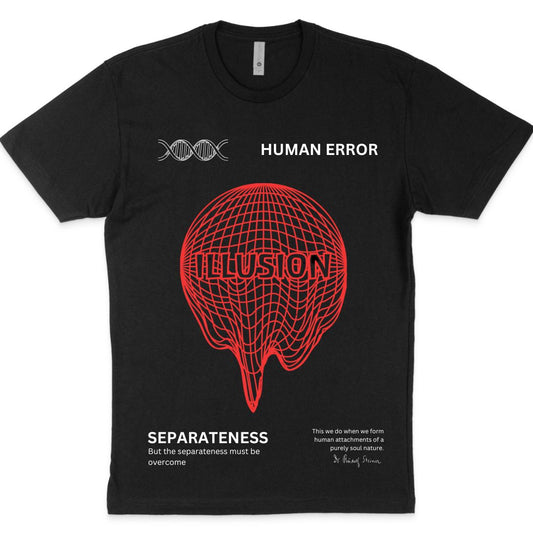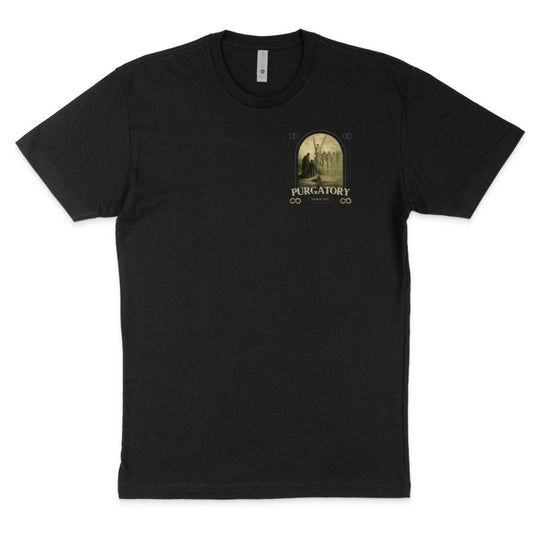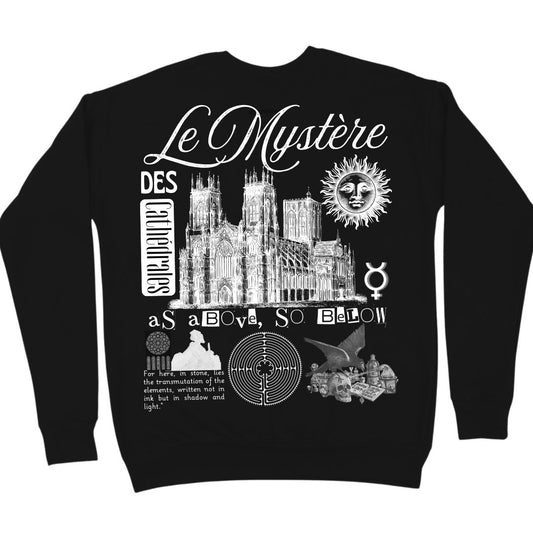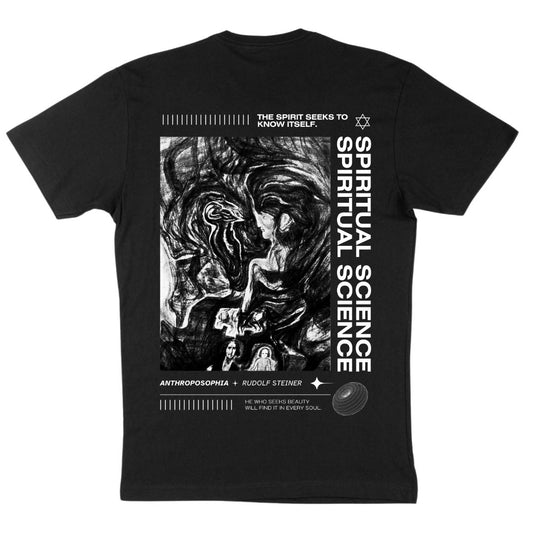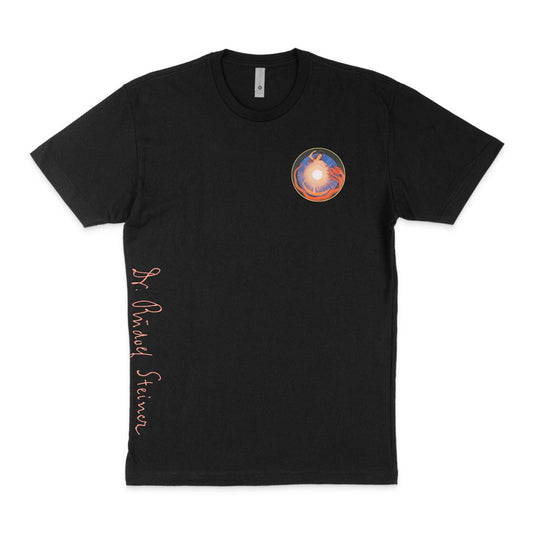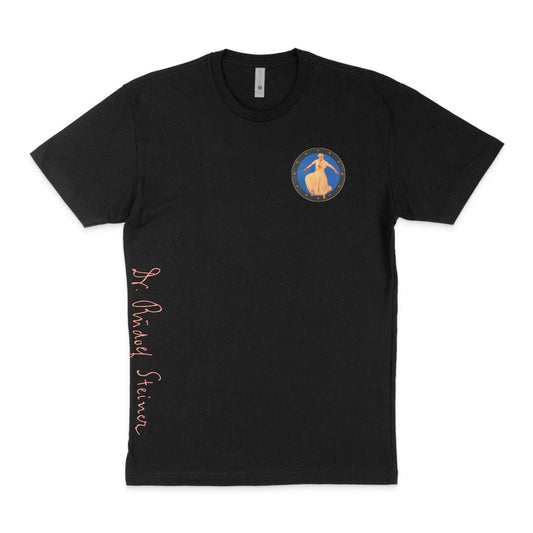Supporting Anthroposophy Research Through Meaningful Wear
Your contribution advances spiritual science and makes Rudolf Steiner's insights accessible to modern seekers
🔬 Our Research Focus
This collection supports ongoing anthroposophy research investigating how Rudolf Steiner's spiritual science addresses contemporary challenges in consciousness studies, education, and human development. Each piece represents a specific aspect of his vast work, from the threefold social order to cosmic consciousness development.
💎 Contribution Transparency
- 70% Research Funding: Directly supports anthroposophy studies, translation projects, and making Steiner's work accessible
- 30% Sustainable Creation: Ethical production ensuring long-lasting, meaningful pieces
Impact: Your support has funded 15+ research articles, reached 50,000+ seekers monthly, and created educational resources bridging Steiner's wisdom with modern applications.
📚 Explore Our Steiner Research Series
Access our comprehensive collection of 50+ articles exploring Steiner's revolutionary insights:
Riddles of Philosophy Series (13 Chapters)
Trace consciousness evolution through 2,500 years of Western thought. From ancient Greek thinking to modern mind-body split.
Philosophy of Freedom Series (8 Articles)
Discover genuine spiritual freedom through conscious thinking. Steiner's solution to free will and ethical individualism.
Theosophy Series (6 Parts)
Systematic presentation of spiritual realities: threefold human nature, reincarnation, karma, and supersensible perception.
Essential Steiner Articles:
Rudolf Steiner's Revolutionary Insights
The Three-Part Soul Structure
Rudolf Steiner viewed the soul as a complex, multifaceted aspect of human beings that exists between the physical body and the spiritual realm, acting as a mediator between the two. According to Steiner's philosophy, the soul consists of three main parts:
- Sentient Soul: The seat of desires, emotions, and sensory experiences
- Intellectual Soul: The realm of thinking, reasoning, and conceptual understanding
- Consciousness Soul: The highest aspect where individual consciousness meets spiritual reality
This revolutionary understanding bridges ancient wisdom with modern psychology, offering practical pathways for consciousness development that our research continues to validate.
From Philosophy to Living Practice
Inspired by the profound teachings from the Rudolf Steiner archives and philosophy, our collection brings anthroposophical wisdom into everyday wear.
Essential Steiner Resources
The Rudolf Steiner Archive offers extensive resources including books, lectures, essays, and articles related to his work. It aims to make his complete works accessible for research and education.
Additionally, organizations like the Anthroposophical Society provide further information on anthroposophy and its applications in modern life.
Educational Revolution: Waldorf Schools
Waldorf Education began in 1919 when Emil Molt, owner of the Waldorf-Astoria cigarette factory in Stuttgart, Germany, asked Steiner to create a school for the factory workers' children. Steiner agreed under conditions that emphasized inclusivity and teacher autonomy.
Waldorf Educational Principles
Waldorf schools offer a broad curriculum that includes traditional academic subjects alongside arts, crafts, music, movement, and languages. The teaching approach is experiential and interdisciplinary, often involving Main Lesson blocks that focus on a single subject for several weeks.
This holistic approach recognizes that children develop in stages, and education must honour these natural rhythms rather than forcing premature intellectualization.
Our Collection Features
- Designs inspired by Rudolf Steiner's artwork and architectural vision - Each piece reflects the aesthetic principles Steiner developed through his work with the first Goetheanum
- Perfect for Rudolf Steiner school communities and education enthusiasts - Wear that connects you to the global Waldorf community
- Clothing featuring powerful quotes from Rudolf Steiner and theosophical wisdom - Carry transformative insights with you daily
- Designs inspired by authentic Rudolf Steiner archives and teachings - Every design researched through primary sources
- Incorporating elements of Rudolf Steiner's architecture and artistic vision - Sacred geometry and colour principles from anthroposophical art
- Perfect for Steiner school communities and bookstore merchandise - Supporting the broader anthroposophical movement
Contemporary Research Applications
Our ongoing research investigates how Steiner's insights apply to current challenges:
- Digital Consciousness: How screen time affects the developing consciousness Steiner described
- Environmental Healing: Expanding biodynamic principles to urban regeneration
- Social Innovation: Applying the threefold social order to modern governance challenges
- Consciousness Studies: Validating Steiner's observations through neuroscience research
Who Was Rudolf Steiner?
Rudolf Steiner (1861-1925) was an Austrian philosopher, scientist, and artist known for his work in developing anthroposophy, a spiritual philosophy that integrates science and spirituality. He was also influential in the fields of education, agriculture, medicine, and the arts.
Anthroposophy: Human Wisdom
Anthroposophy is a philosophy founded by Steiner that seeks to understand the spiritual world through a scientific approach. The term comes from the Greek words "anthropos" (human) and "sophia" (wisdom), meaning "human wisdom." It emphasizes personal spiritual development and understanding the interconnectedness of all life.
Deepen Your Understanding
For a detailed exploration of this holistic approach to human wisdom and development, the Sydney Rudolf Steiner College offers an illuminating overview of Anthroposophy's practical applications.
The Canadian Anthroposophical Society provides resources and community for those interested in exploring Steiner's work further.
Join Our Research Community
When you support this collection, you become part of a global community dedicated to making Rudolf Steiner's transformative insights accessible to modern seekers. Your contribution enables:
- Translation of untranslated Steiner lectures
- Research into practical applications of anthroposophy
- Educational resources for Waldorf communities
- Digital archives making Steiner's work searchable and accessible
- Contemporary studies validating Steiner's spiritual scientific observations
🌟 Community Impact
Together, we've achieved:
- Funded research reaching 100,000+ spiritual seekers monthly
- Created educational materials for 25+ Waldorf schools
- Built digital resources making anthroposophy accessible to new generations
Be the first to receive exclusive updates, new collections, and opportunities to deepen your spiritual knowledge.
Why This Matters Now
In our age of digital overwhelm and spiritual disconnection, Rudolf Steiner's insights into consciousness development and human potential are more relevant than ever. His work bridges the gap between scientific understanding and spiritual wisdom, offering practical pathways for personal and collective transformation.
Through this collection, we're not just wearing symbols—we're carrying forward a living stream of wisdom that continues to unfold its relevance for contemporary challenges.
Start Your Steiner Journey
Choose your path into Steiner's revolutionary insights:
- New to Steiner? Begin with Who is Rudolf Steiner?
- Philosophy Explorer? Dive into the Philosophy of Freedom Series
- History Enthusiast? Start the Riddles of Philosophy journey
- Spiritual Seeker? Explore the Theosophy Series






